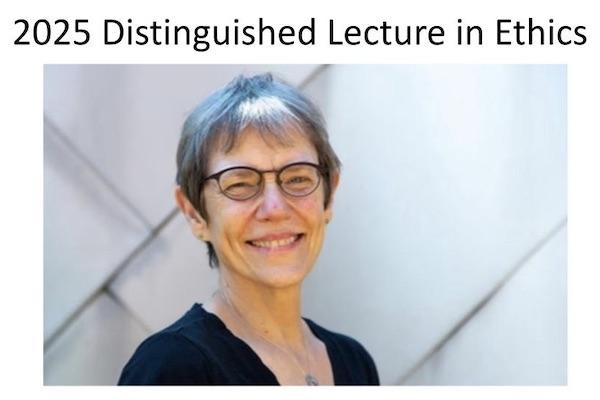
The Ohio State Center for Ethics and Human Values' annual Distinguished Lecture in Ethics brings to campus leading ethicists and political philosophers who have demonstrated the value of ethical reflection beyond academia. Past speakers include Amartya Sen, Danielle Allen, Elizabeth Anderson, Miranda Fricker, Michele Moody-Adams, Tommie Shelby, and Andrew Light.
For our 2025 Distinguished Lecture, CEHV is delighted to welcome Sally Haslanger (Ford Professor of Philosophy and Women's & Gender Studies, Massachusetts Institute of Technology). Haslanger's research interests encompass social and political philosophy, feminist theory, and critical race theory. She is the author of Resisting Reality: Social Construction and Social Critique (Oxford University Press, 2012), which was awarded a Joseph B. Gittler Award for philosophy of the social sciences. In her most recent book, Doing Justice to the Social (under contract with Oxford University Press), Haslanger develops an account of ideology that illuminates the role of culture in shaping social subjects and provides an account of social practices and social structures that calls attention to their materiality.
"Explanations of Systematic Disadvantage:
Discrimination and Social Formation"
How should we understand “structural” or “systemic” injustice, such as structural racism or class exploitation? One of the challenges we face is that it is not entirely clear how to understand what social structures are, and how agents are situated in them.
A familiar model sees the social domain as constituted by individuals through their collective intentions. (I’ll call this an associationist approach.) The associationist approach allows us to capture some social structures and their normatively problematic consequences, but it is too limited. Of course, some forms of oppression arise from discrimination in the formation and maintenance of associations. However, discrimination is often a byproduct of processes of social formation that cannot be reduced to interactions between individuals (think of class). To address oppression more fully, we need to understand those processes.
In this talk, I will offer a different picture of how societies work, relying on the idea that societies are complex dynamic systems affected by material and semiotic dynamics. My broad aim is to provide evidence that although an associationist social ontology is part of the story of structural injustice, it leaves us without all the resources we need to analyze what’s going wrong in structurally unjust societies and how to change them.
The Distinguished Lecture in Ethics is free and open to the public.
